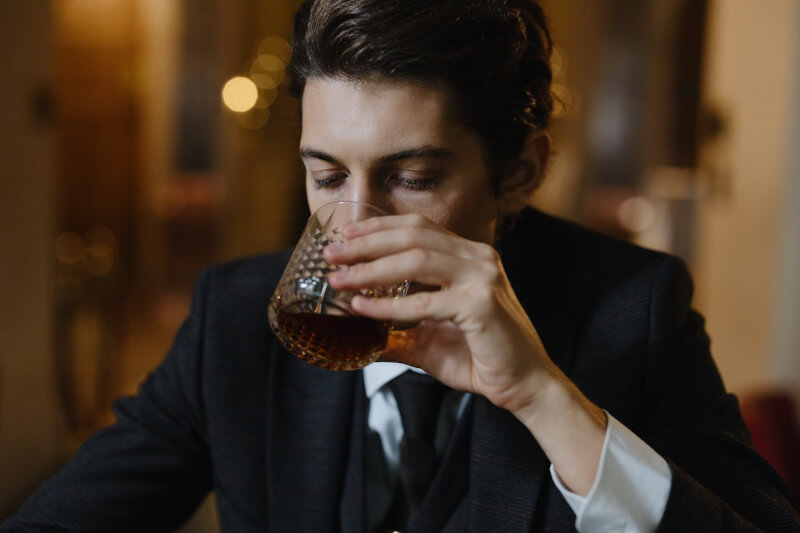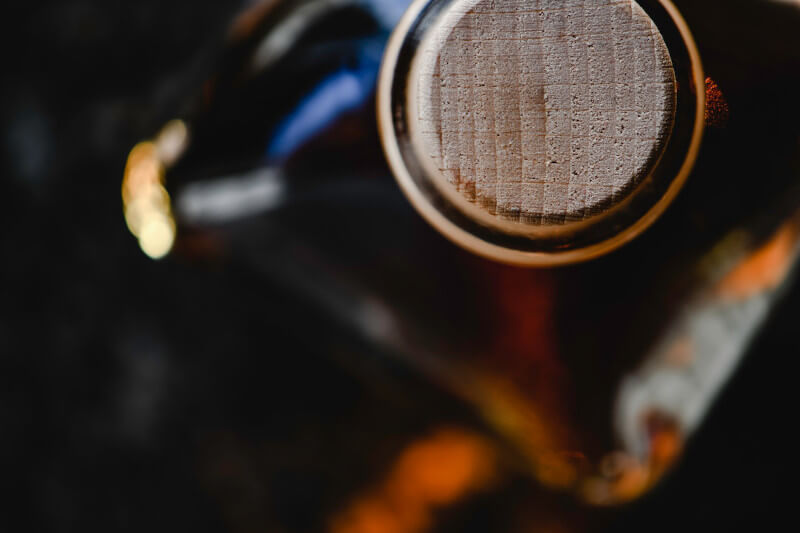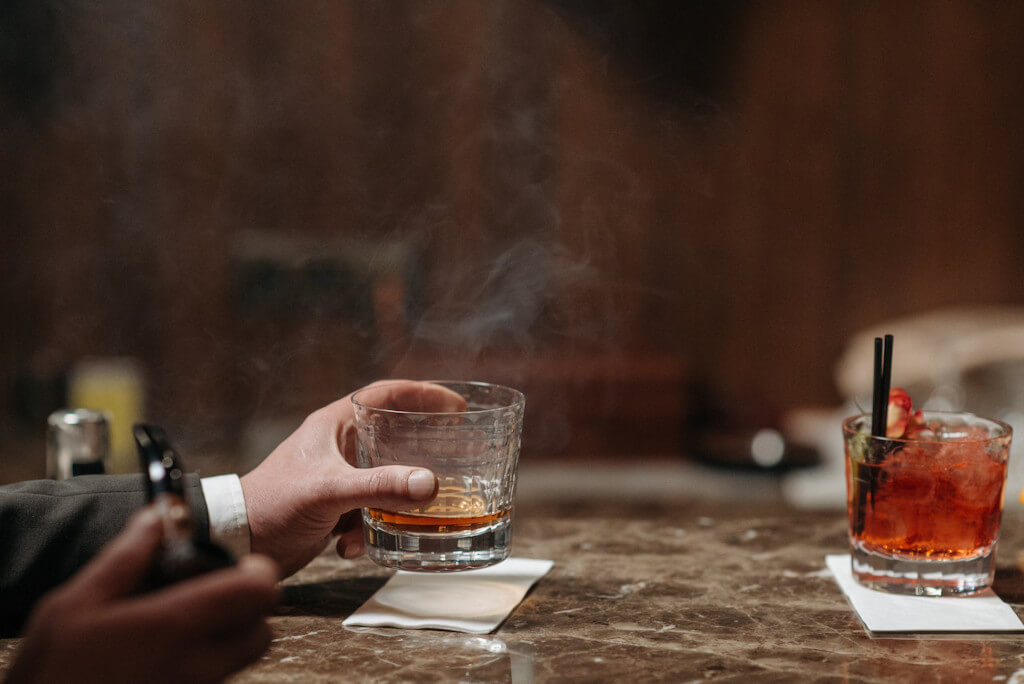If you’re a whiskey aficionado on par with us, your home bar probably features a large selection of different brands and types of whiskey. It’s good to have options and different whiskies work better in different settings.
The bad news is that you probably have open bottles of whiskey in your bar that have been sitting there for a while. Yes, indeed, we do. Maybe now you’re wondering if this bottle of whiskey is still drinkable.
Can whiskey go bad or expire? When whiskey is left out in the open, what happens to it? For how long can whiskey be used? What happens to my rare, unopened bottles over time? Almost no limits can be placed on the inquiries. The results could shock you. We looked into all of these points and more to bring you comprehensive information about these spirits. Learn everything you need to know about whiskey’s storage life below.
Can Whiskey Get Old?

It’s impossible to say. When stored properly, whiskey in an unopened bottle can keep indefinitely. Any rare bottles you have can last for decades if you keep them sealed and out of the light.
The clock starts ticking, though, the moment the bottle is opened. Depending on conditions, an opened bottle of whiskey can stay good for up to two years, or go bad in as little as six months.
Why Does Old Whiskey Go Bad?
Whiskey spoils for the same cause as wine and beer do as they age. Exposure to air, sunlight, or high temperatures can degrade the flavor and potency of alcoholic beverages, rendering them dangerous for consumption.
How Does Light Affect the Standard Shelf Life of Whiskey?
All alcoholic beverages, not only whiskey, lose quality when exposed to light. Loss of alcohol’s original hue may result from its exposure to ultraviolet (UV) light from the sun, the same type of radiation that causes sunburns.
To reduce the amount of light that can degrade the alcohol’s quality, whiskey bottles (and those of other alcoholic beverages) tend to be dark green or brown. However, a cabinet or shelf that doesn’t get any sunlight is the best place to store your bottles.
What Effect Does Temperature Have on the Stability of Whiskey?
Once you’ve dealt with the issue of light, you should also be aware of the impact temperature has on whiskey’s storage life. Terpenes, found in whiskey and many other foods, drinks, and perfumes, are the chemical components responsible for their aromas and flavors.
These chemicals are sensitive to temperature and will deteriorate or change as the alcohol is heated or cooled. If enough unfavorable changes occur, the bottle may no longer be drinkable. The best temperature for storing alcohol is around 70 degrees Fahrenheit, where it will stay generally stable. A basement or cellar that is effectively insulated against temperature changes is ideal for long-term storage of bottles.
What Effect Does Oxidation Have on the Stability of Whiskey?
Last but not least, oxidation is the single most important element in deciding how long your whiskey will last. Since the alcohol in a sealed bottle of whiskey is never exposed to air, it can be consumed at any time. Once you break the seal, it will no longer be airtight. There’s greater room for oxygen as you use more of the bottle’s contents. As the bottle empties and fills up, the oxidation rate will increase.
As a result, once a bottle of whiskey is opened, its shelf life immediately begins to diminish. As you consume more of it, its expiration date will quickly approach.
How Long Can I Leave an Open Bottle of Whiskey Before It Goes Bad?
The clock starts ticking the moment you open a bottle of whiskey. But how long must whiskey be aged before it reaches its full potential?
Depending on the conditions in which it is kept, an opened bottle of wine might live anywhere from one to two years. But this only applies if the bottle is at least a third full. Once a whiskey bottle is less than a quarter full, you may only expect to get about six months out of it. We must stress that these are just guesses. These figures may go up or down depending on the conditions of storage and air exposure.
What Happens When Alcohol Ages?
You’ve undoubtedly been wondering for a while what the big deal is about aging alcohol before bottling as opposed to just leaving a bottle of alcohol sitting on a shelf, either unopened or already used. How come one spoils while the other improves with time?
Whiskey is aged in wooden barrels, where it is kept under lock and key to avoid oxidation that causes flavors and compounds to deteriorate. Therefore, the whiskey can safely acquire new flavors while aging in the barrel.
How to Keep Whiskey from Going Bad

A sealed bottle of whiskey can theoretically last forever if kept in the correct conditions. By adhering to these simple storage guidelines, you can increase the longevity of your bottles.
Put Your Whiskey Away From the Light
The first rule of storing whiskey is to keep it out of harmful sunlight, as the UV radiation from the sun destroys the colors and flavors over time. Store your bottles in a dark cabinet or other section of the house that is shielded from direct sunlight. Whiskies should be stored in a dark place; the box or bottle sleeve they arrived in was designed to do just that. Don’t let the whiskies sit out in the open; instead, keep them in the dark containers provided.
Keep Your Whiskey at a Stable Temperature
The second step in ensuring that your whiskey lasts as long as it can is to store it in a cool, dark place with a constant temperature. Whiskey loses its terpene flavor molecules when exposed to temperature variations, which can affect its flavor in unpleasant ways. On warmer days, you may want to keep your bottles in the cooler environment of a cupboard. Protect long-term storage bottles from fluctuations in temperature by storing them in a basement or cellar.
Put Your Whiskey Bottles Away in a Wine Cellar or Refrigerator
The last piece of advice we have for you is to store your whiskey in a cellar or wine refrigerator. It’s worth it to invest in a wine cellar or refrigerator even if it means spending a lot of money up front. A wine cellar or refrigerator is designed to be dark, cool, and dry. This maintains a stable temperature and humidity level, protecting the whiskey from spoilage.
To What Extent Does Whiskey Last?
Whiskey doesn’t technically go bad, but it does lose some of its best qualities once it’s been opened. The shelf life of an unopened bottle of whiskey is unlimited. If you open a bottle of whiskey, you have anywhere from two years down to six months before it goes bad.
Keep your whiskey at a constant temperature, away from any extremes in temperature, and in an airtight container for optimal storage conditions. It doesn’t take much work to store whiskey for the long term, and doing so is well worth it to preserve your favorite spirit.

